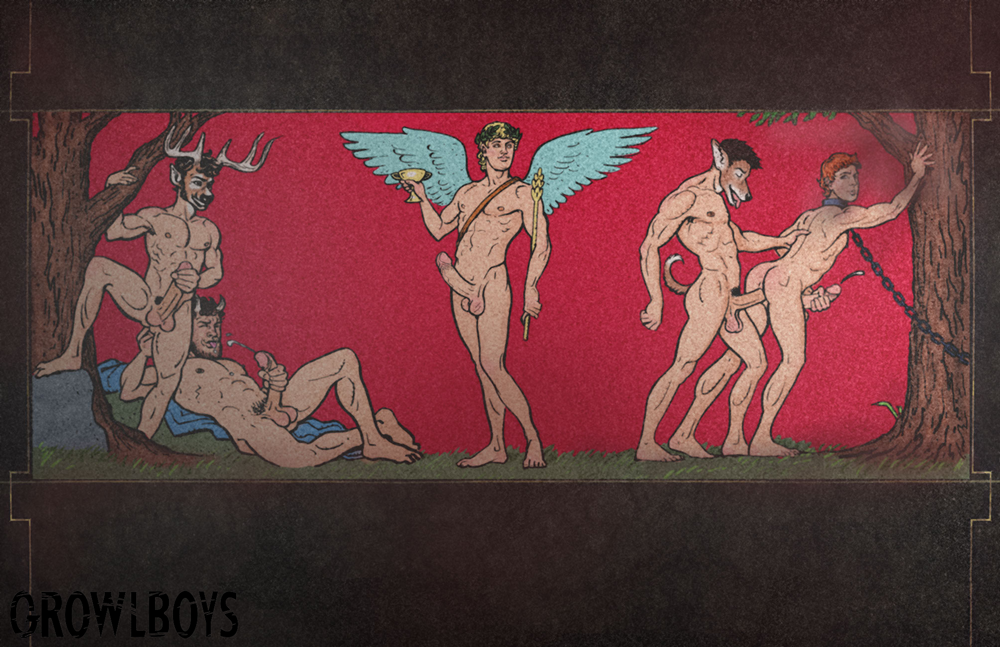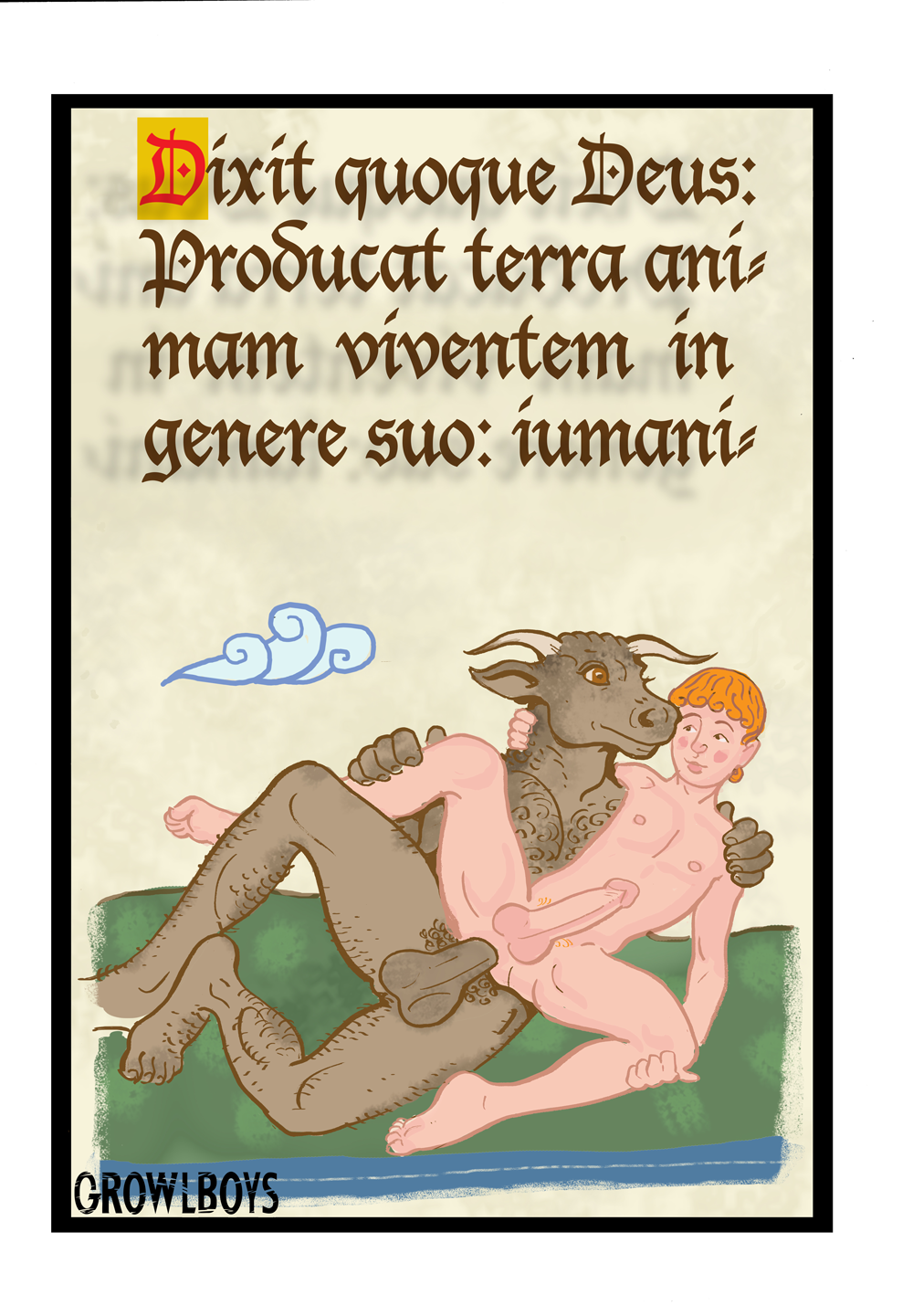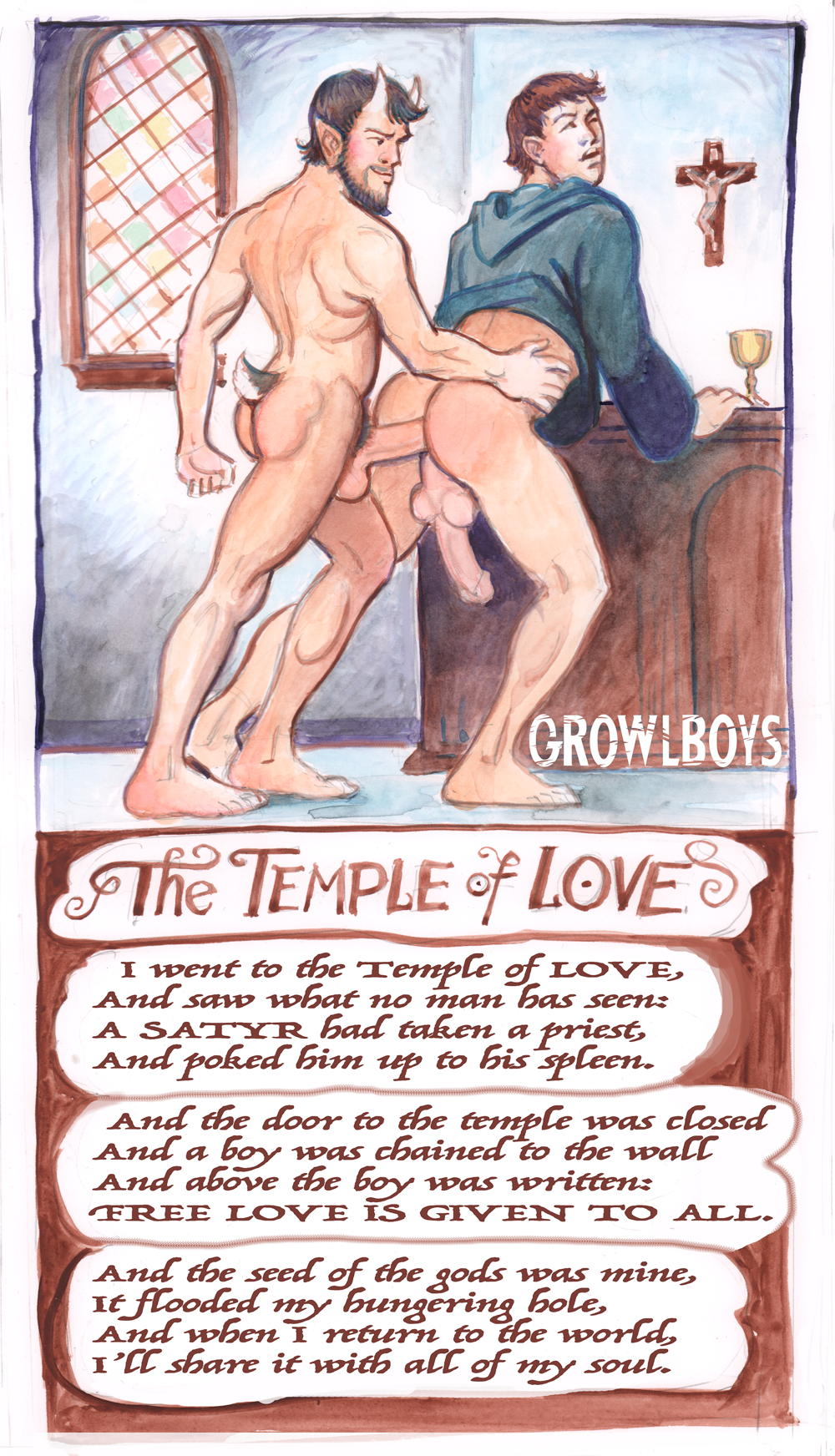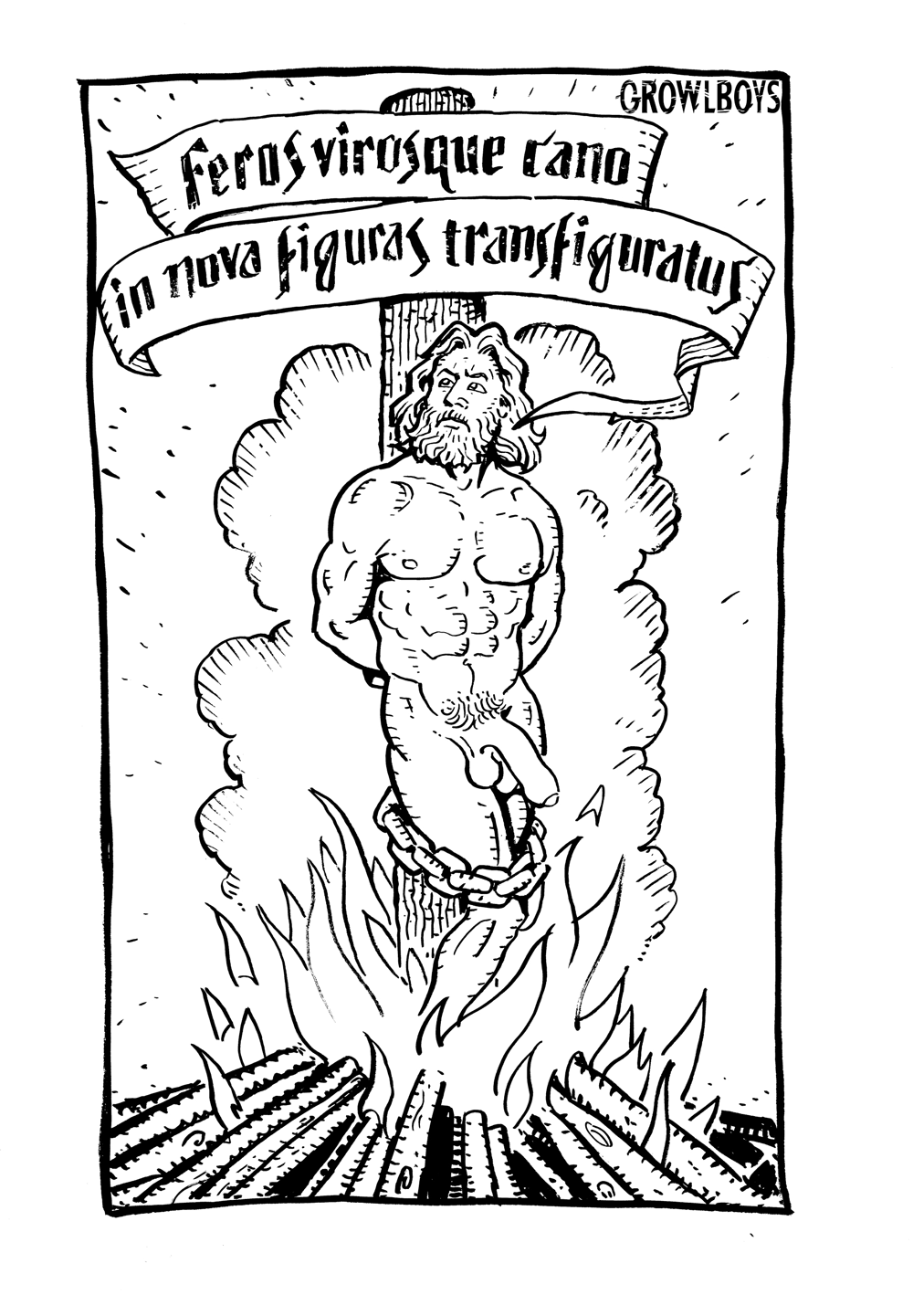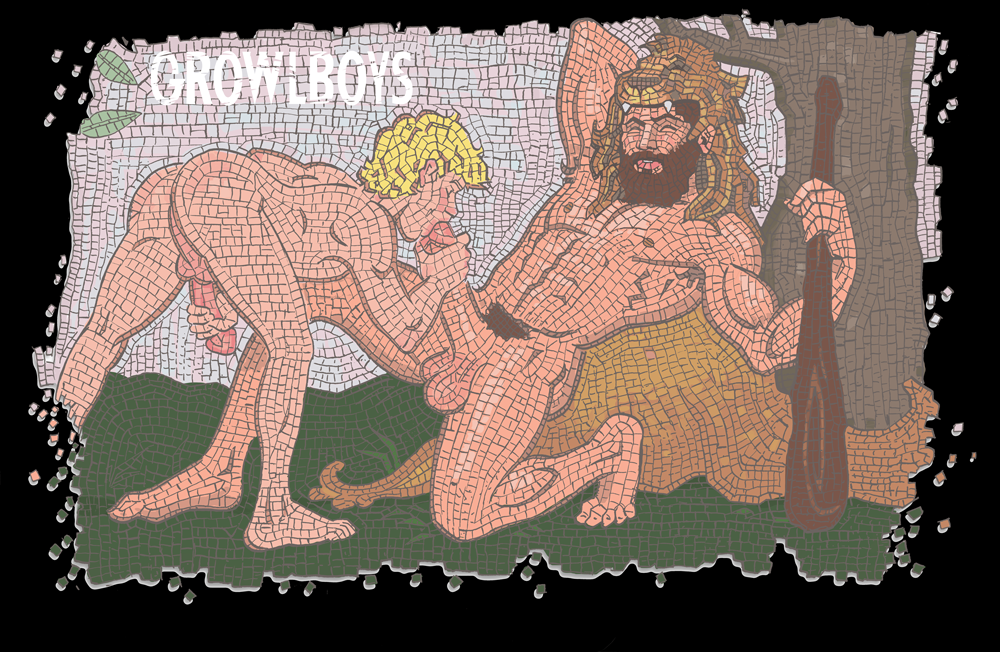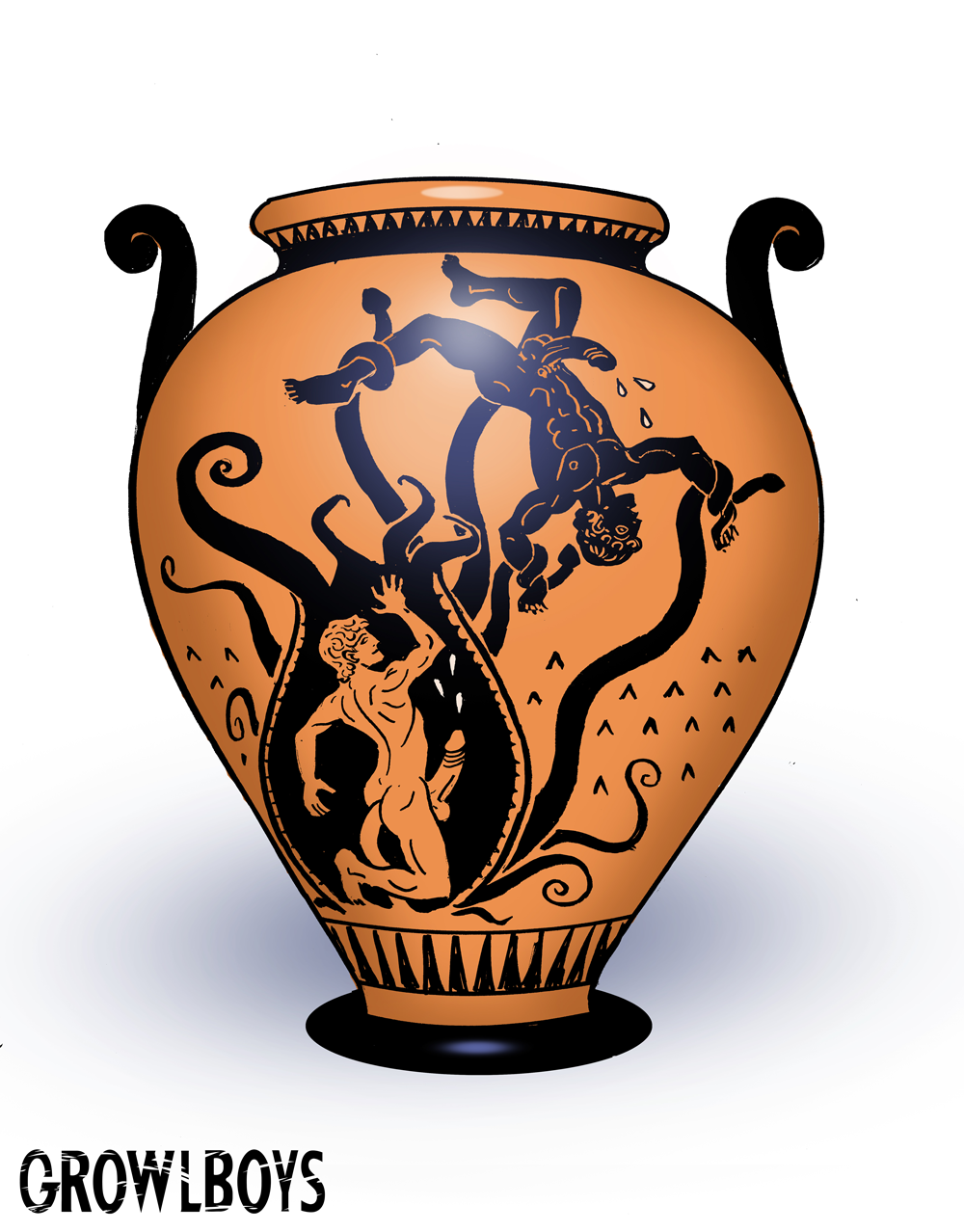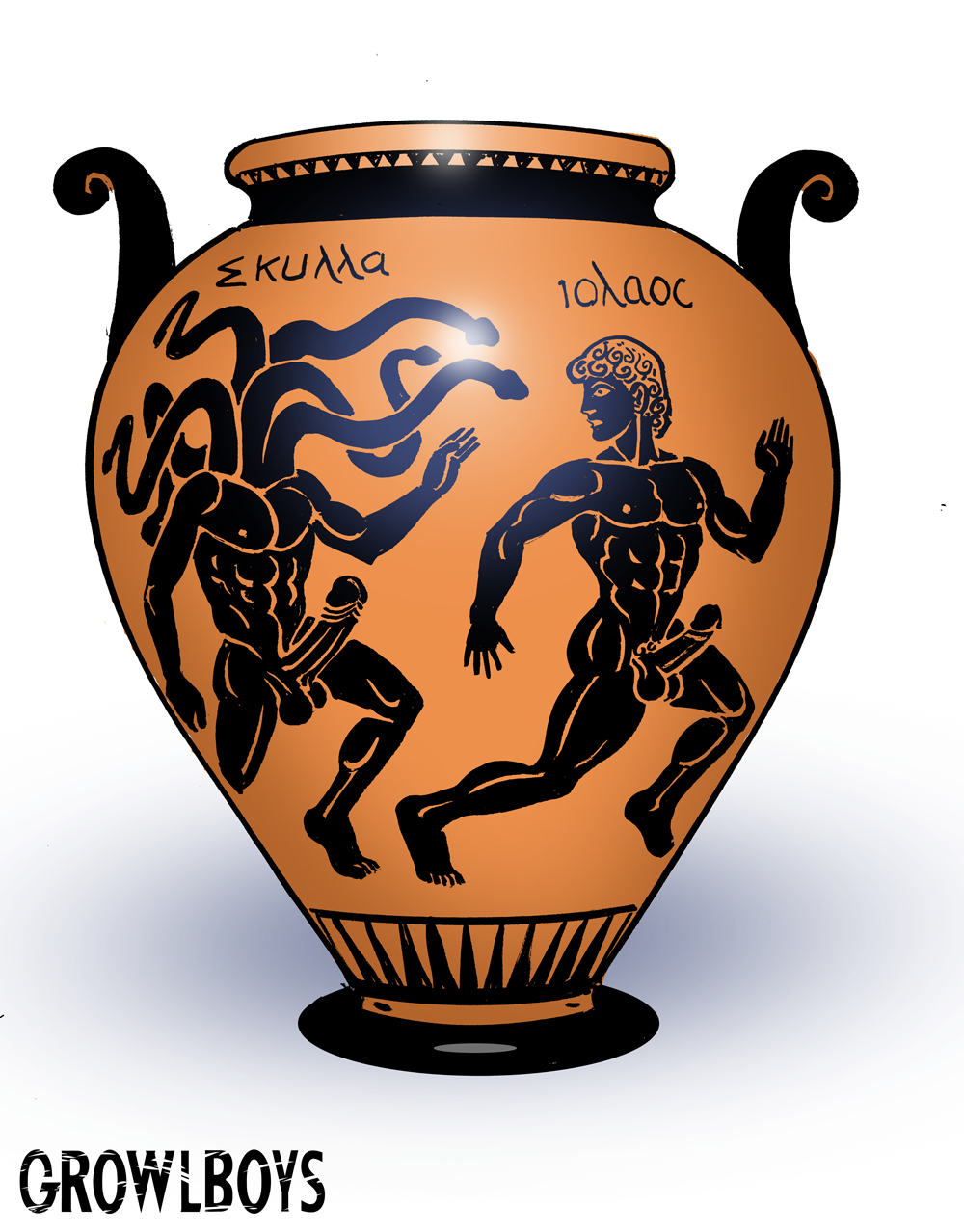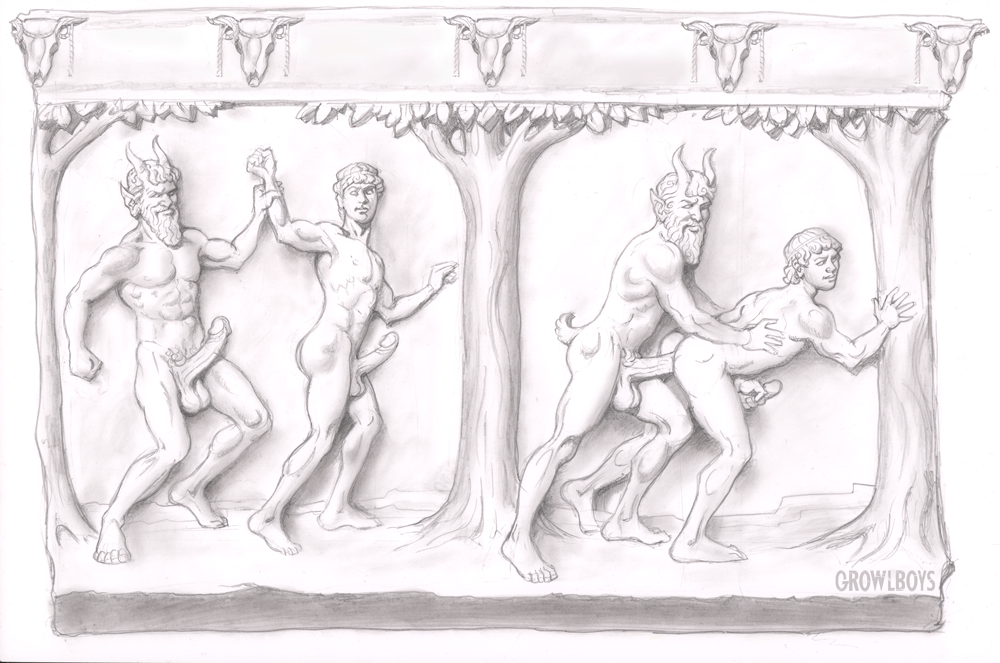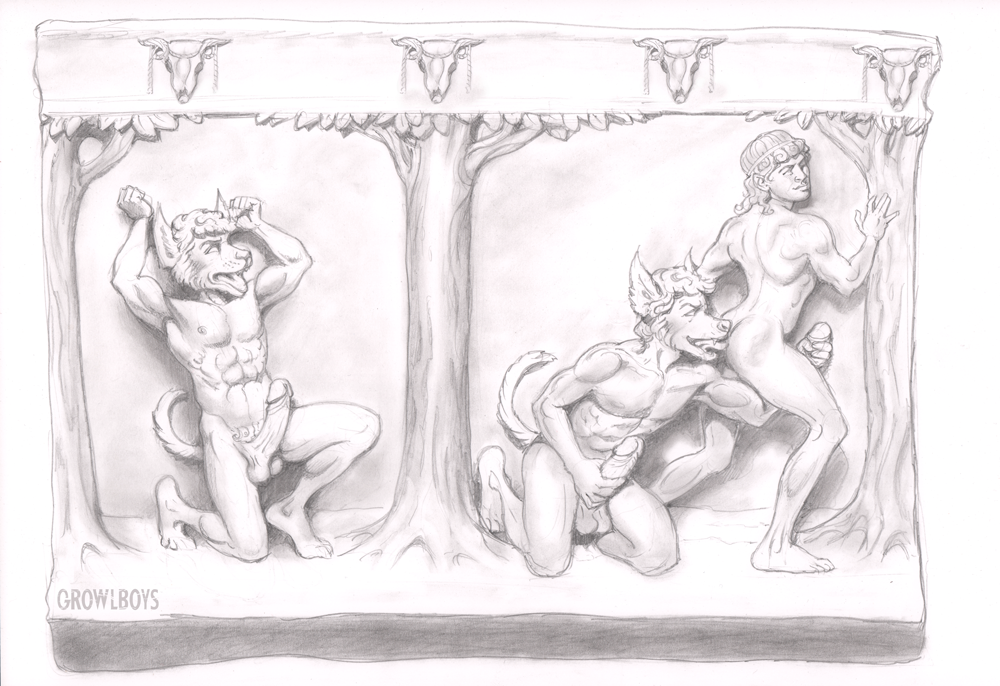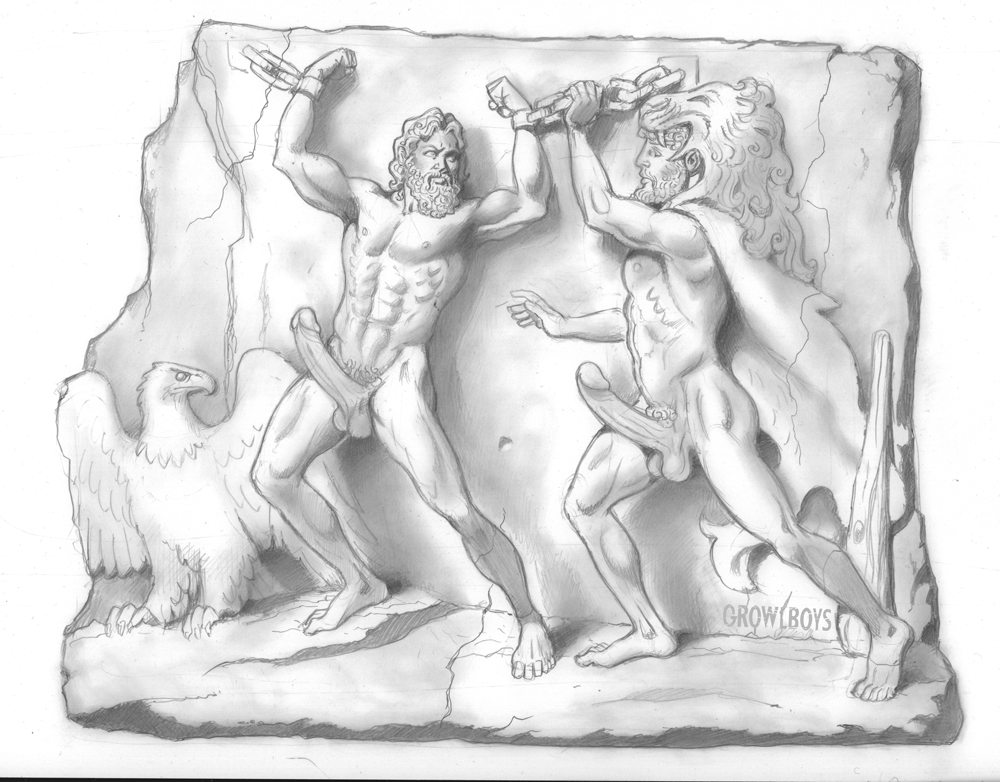THE BOOK OF CHANGES
“Much ink has been spilt on the elusive text known as The Book of Changes, or Libro Mutationes. Written in Augustan Rome by an author known to posterity as Germinius, the book has been imitated often but never fully understood. The transformations it describes are, according to its author, neither symbolic nor mythical — they’re historical facts, which later writers fancifully interpret as allegories. Unfortunately, the book was suppressed by the early Christian church on account of its heresy and its graphic sexual content.
“The Book of Changes was concerned above all with semen — the divine seed of the Thebans that serves as the catalyst for the marvelous transformations the book’s bewildered human protagonists experience. After being surprised by beings the characters believe to be gods, they are pursued, inseminated, and then begin to exhibit characteristics of creatures spanning kingdom Animalia.
“The Book of Changes reappears in odd places throughout history: in the margins of a medieval Bible in Ireland a monk has drawn one of the book’s very unchristian scenes; a scrap of the text is quoted in a book of spells compiled in Bologna in the 12th century; a heretic burned at the stake in pre-Reformation Germany recited a passage as the flames consumed him; the title appears on the Inquisition’s index of prohibited books; an Enlightenment philosopher wrote an exhaustive refutation of the book’s ontology; and one Romantic English poet constructed an idiosyncratic mythology out of the book’s contents.
“There is talk throughout the ages of a secret cult that has passed on the book’s scientia sexualis from the time of its writing to the present. But no extant copies of The Book of Changes are known to modernity, and if you ask about the book at any of the more famous research libraries, they’ll tell you there’s no credible evidence that the Libro Mutationes ever existed.”
- from Pernicious Books: A Bibliography, by Therion Virum
THE PROMETHEAN MYSTERIES (Προμηθέα Μυστήρια)
“Of all the ancient mystery cults, one stands out from the others, both for the oddity of its beliefs and the especially wild, sexual nature of its rites. The Promethean Mysteries were like no other in the Græco-Roman world. While most of the ancient mystery religions centered on the worship of one particular deity, those initiated into the Promethean Mysteries worshipped a huge pantheon of part-human, part-animal demigods.
“Details about the Prometheans’ beliefs and practices are scant; this is hardly surprising, given the strict secrecy observed by adherents. But some information has reached us from that vanished world. From Herodotus, we learn that two tiers of deity were worshipped by the cult: the Thebans, an older, superior race of gods, and the Prometheans, who were younger and possessed of more limited powers. These Thebans should not be confused with the ordinary citizens of ancient Thebes, though the cult’s holiest site was located just outside the famous city, a cave known as the Promethean Spelunx. It was within this cave that King Laius is said to have penetrated Chrysippus from behind and in so doing initiated the glorious Greek tradition of homosexuality.
“Even more shocking than their peculiar pantheon, however, are the reports of what went on during the cult’s secret ceremonies. Apollodorus tells us that deep in the cave at Thebes initiates would enter a trance, transform into animals, and indulge in uninhibited orgies. Other sources indicate that these orgies were not always safe for participants. On occasion, boys who entered the cave were never seen again. While it is impossible to verify sources of such great antiquity, we cannot rule out the possibility that an element of human sacrifice was involved.
“A medieval commentator on the Odyssey links the poem with the cult’s strange practices, claiming that Circe’s beasts represent the Prometheans, hypersexual beings who have the power to change into animals and back again. The same commentator claims that the Scylla of Homer’s poem is in fact a class of vegetal deity, common in the sea and underground, that has the peculiar habit of violating young men with its tentacles before consuming them whole.
“Various cult objects of the Promethean Mysteries survive, painting an intriguing picture of this ancient religion. On the curious krater discovered in the cave at Thebes, several youths are in various stages of an encounter with a scylla — one flees, another is caught, while an unlucky third is anally penetrated and ingested. This cycle appears to have been at the heart of their worship, as attested by Horace, in one of whose poems a magician mentions the scylla among the gods of the underworld and prays for protection against their dark powers.
“Most significant among the artifacts is a beautifully preserved frieze uncovered in Athens, the famous Boy Pursued by Satyr. In the first section, the boy is pursued; in the second, the satyr sodomizes him. In the third, the boy has metamorphosed into a canine creature, apparently because of the satyr’s semen. In the final section, the dog-boy is engaged in sexual intercourse with another youth. Here seems to be the whole cycle of the Prometheans’ secret rites, which we assume were acted out anciently in the cave at Thebes with the help of costumes and other theatrical equipment.
“In a prayer carved into the wall of this cave, the promise of immortality for adherents is made explicit. Dutiful worshippers hoped that their orgies and their transformations would secure for them a share of the gods’ blessedness. The descent via a cave into hell and the miraculous rebirth to immortality is a symbolism shared with the other Mysteries. But unlike those other cults, immortality for the Prometheans is linked to reception of the gods’ divine semen.”
- from Sexual Practices of Ancient Greece, by Priape Phallophagos
A QUEER CULT
“The implications of the ancient Promethean system are radical — it fundamentally contradicts the values that (in one of history’s great ironies) Western hegemony would come to espouse and enforce. Though the patrimony of the Greco-Roman world places a high value on queerness, the Christian middle ages would revise their inherited learning to locate the telos of human existence in marriage, child-bearing, and the education of virtuous citizens in the home. The Prometheans’ idea of individual human destiny involves the sublimation of the human into the divine by means of gay sex. Semen is not primarily important for the production of a new creature, and the proper use of sex is not reproduction; instead, semen transforms the man who receives it, he himself is the new creature, and sex is properly a means of pleasure and self-realization. Patriarchy, imperialism, racism — all the ugly ‘virtues’ of the sunlit, rational Apollonian cosmos are forced to give way to a rowdy philosophy of joy and self, a celebration of the chthonic powers. The superego is toppled by the id, liberating the ego to know itself, to play, to realize its unique destiny. In their profane sacrament, in their communion of cum that anticipates Christ’s Last Supper, when twelve men eat their leader’s meat and drink his fluids, in their eudaemonic eucharist the Prometheans imagined the radical queer future toward which we are still on pilgrimage.”
- from Cadmus Sows His Seed: Queer Destinies in Antiquity by Aimé Renard
PROMETHEUS IN LITERATURE AND MYTH
“How do we explain the almost total absence of information regarding the worship of Prometheus? Prometheus was one of the central figures of classical mythology and literature, a figure who stood in a crucial intermediary position between men and gods, a kind of Christ of the pagan world. So where are his worshippers? Is the lack of information due to his identity as a Titan and not an Olympian? That seems unlikely, since he sided with the Olympians during the war on the Titans, and since other demigods and heroes outside the ranks of Olympians enjoyed extensive worship.
“Where the other mystery cults tried to keep their unique beliefs secret, and failed, the Prometheans somehow succeeded. Their mysteries remain mysterious. Who these adherents were, what they worshipped, even where they worshipped was unknown to the uninitiated. Lucian, writing during the second century CE, noted that ‘temples of Zeus and Apollo and Hera and Hermes are everywhere; but who ever saw a temple of Prometheus?’ Further evidence of the Prometheans’ singular ability to guard their secrets can be found in the career of Aeschylus. The dramatist wrote three plays about Prometheus. The only one to survive, Prometheus Bound, is very suggestive but reveals very little information about his worship. The two plays in which the mysteries were probably explained, Prometheus Unbound and Prometheus Pyrphoros, are entirely lost, along with any of the secret teachings they contained. It is not perhaps overreaching to assume that the plays were destroyed by zealous initiates who wished to keep their secrets secret.
“Only in Athens do we get the sense that worship of Prometheus was widespread, if entirely occult. It seems that Prometheus did indeed have his devotées, but they preserved the secrecy of his rites so well that they have disappeared almost without a trace. An altar to Prometheus in the grove at the Academy, regular holidays dedicated to him on the Athenian calendar, the running of his torch during the Panathenaic festival, and even the existence of his own festival, the Prometheia... But what did they believe, what did they do? Was the worship so obscene that every trace of it had to be blotted from history?”
- from Stolen Fire, Hidden Desire, by Gotthold Mörehog
PROMETHEANS AND THEBANS
“Prometheus was a benefactor to humanity; he created the human race, and he gave them not only fire, but also agriculture, writing, science, medicine — the whole foundation of civilized life. For this he was punished, chained to a rock for eternity, his immortal liver made the gruesome, daily repast of the sacred eagle.
“This is where his connection to the ancient city of Thebes enters the picture, because it was the most famous of Thebans, a tough guy who had many lovers, both male and female, the mighty Hercules, who freed Prometheus from the rock on which he was either chained or crucified.
“But what do these myths mean? Who are the Thebans, and why did they decide to free Prometheus? And what has Prometheus been up to since he was let loose? The mythic cycle seems to point to some secret scheming amongst the gods as to humanity’s ultimate purpose. But only those who were initiated into the Promethean Mysteries can say what that purpose might be.”
- from the abstract for Hercules and Prometheus: Humanity’s Origin and Fate, a doctoral dissertation by Willy Smoot

